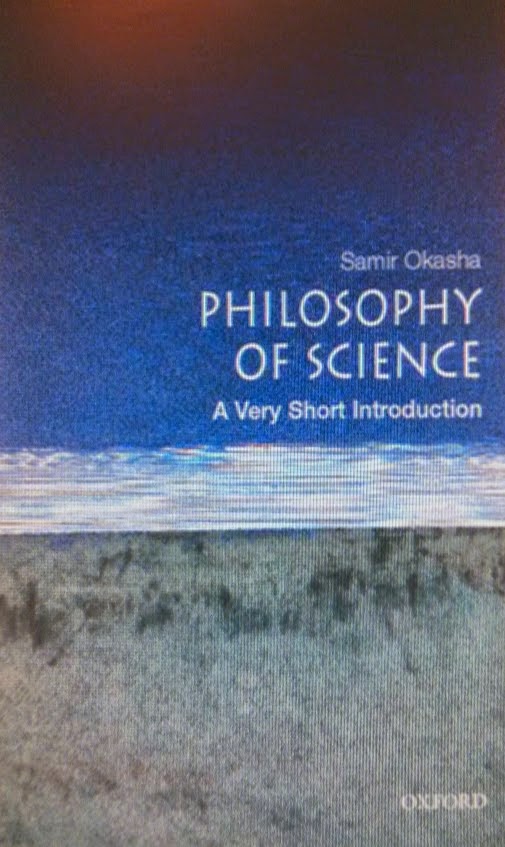The Philosophy of Science A Very Short Introduction by
Samir Okasha discusses the very nature of science and what it means to engage
in scientific thinking. The book will bring you through the definitions of
science, scientific reasoning, realism and anti-realism, scientific revolutions
and philosophical problems. It is solid reading for students and laypeople that
desire to get a basic grasp of science.
Science started in the 1400 to 1700 with people like
Copernicus who built a model of the universe and Aristotle who put forward ideas
of physics, biology, astronomy and cosmology. Science is a way in which we
think about the world (i.e. scientific mindset) and how we compare and contrast
elements to come to conclusions of the world in which we live.
A key component of science is a concept called
falsifiable brought forward by Karl Popper. All theories and predictions must
be falsifiable in the sense that experience can determine them wrong over time.
Pseudo-science was described as theories of psychotherapy brought forward by Freud
because anything the patient does can be explained away with no obvious
observable proofs of latent functions.
Consider the use of a theoretical model to predict
that a certain event will occur. As time moves forward the event either happens
or it doesn’t thereby making is verifiable. Theories that cannot be tested and
shown to be false are also unlikely to be true. There must be criteria to lend
support or take support away from the theory. If you can’t prove or disprove it
then it isn’t a theory.
More pointedly the book discusses induction and
deduction as methods of understanding concepts and coming to new conclusions.
The example of deduction provided by the book is 1.) The French like wine, and
2.) Pierre is a Frenchman therefore it can be deducted that Pierre likes wine. It doesn’t matter if the inferences actually
make the conclusion true but that they can lead to the conclusion.
Inductive reasoning is difficult to use in science
but is commonly applied to everyday life. It is assumed that the sun rises in the East and
sets in the West every day. Using inductive reasoning we can say that the sun
will rise in the East tomorrow and set in the West. We are likely to be right
but that doesn’t make it a truth while the observation isn’t necessarily proof
that it will happen over and over.
The book doesn’t move into this concept but it is
possible to use deductive, inductive and probable abductive reasoning together
to be more accurate. We may use deductive reasoning to go from the general down
to the specific and then use inductive reasoning to rebuild the model outward
in another place to see if it also holds true. We can then use abductive reasoning to
understand the likelihood of the conclusion holding true to the explanation in
both examples.
Either way you are likely to find the book
interesting and provide a broad understanding of the basic principles of
science. It is the type of book you should read if you have studied the sciences,
plan on studying to a doctorate, or want to test something within your
environment. The price on kindle is reasonable and retails for around $2.


